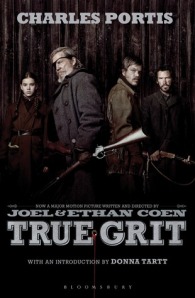
My wife said if you want to write better short stories (I do) why not read some good examples, like Neil Gaiman’s Smoke and Mirrors, a collection of his works first published in 1999. What a wise woman (my wife, not Neil Gaiman, he is a wise man).
I have finished now and I am inspired. Generally I find anything less than a full-blown novel difficult to write, but Gaiman can’t stop himself launching into an extra short tale in his introduction to the book that is full of them.
Simple words, nothing pretentious or fancy, but so imaginatively and brilliantly written with such lifelike characters. I feel like I know Mrs Whitaker – I really should nip around for a cup of tea and check she is all right. And somehow it’s very credible that she came to posses the Holy Grail.
As I progressed through the collection I found the stories quite mixed, some would work for young readers and some would be unsuitable. I didn’t really get on with the narrative poems, but no doubt that says more about me than Mr Gaiman’s work.
What the book left me with , apart from excellent entertainment, was a fine demonstration that while an obvious truth, uttered tentatively or timidly, can become doubtful and unbelievable, the impossible, stated with confidence and conviction, can become plausible and even probable…






 rules or laws led to traumatic breaches in my peace of mind. It’s a frailty of gumption that, luckily for me, shares the symptoms of a moral compass.”
rules or laws led to traumatic breaches in my peace of mind. It’s a frailty of gumption that, luckily for me, shares the symptoms of a moral compass.” a book published in 1996. Well OK it’s about the current and excellent TV adaptation, but that is of course based on George RR Martin’s A Song of Ice and Fire novels. If you have read them you will know that this is just one element of what makes them great, the shock twists are but a part of a much broader realism and complexity.
a book published in 1996. Well OK it’s about the current and excellent TV adaptation, but that is of course based on George RR Martin’s A Song of Ice and Fire novels. If you have read them you will know that this is just one element of what makes them great, the shock twists are but a part of a much broader realism and complexity.